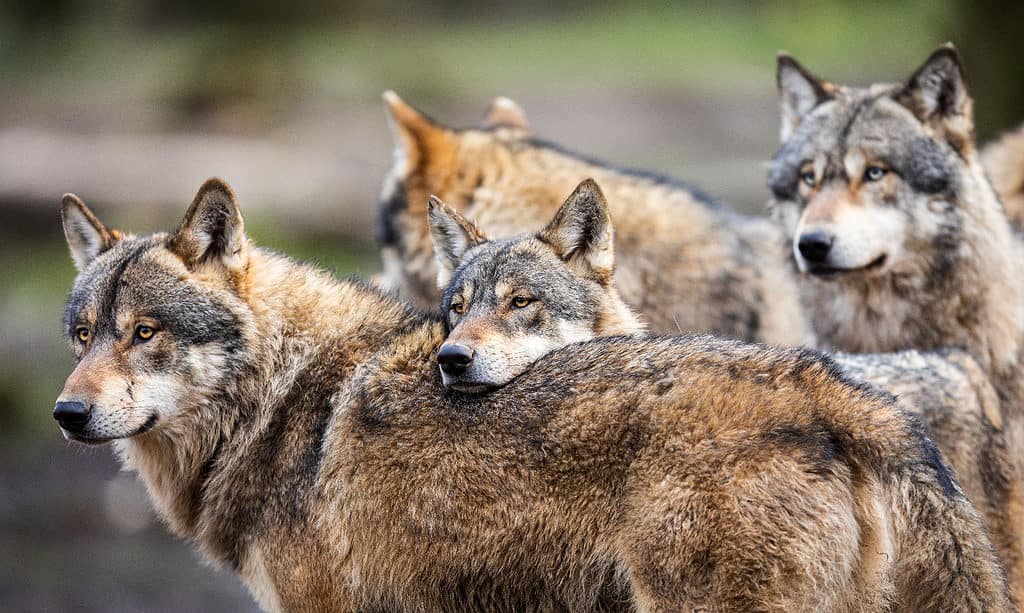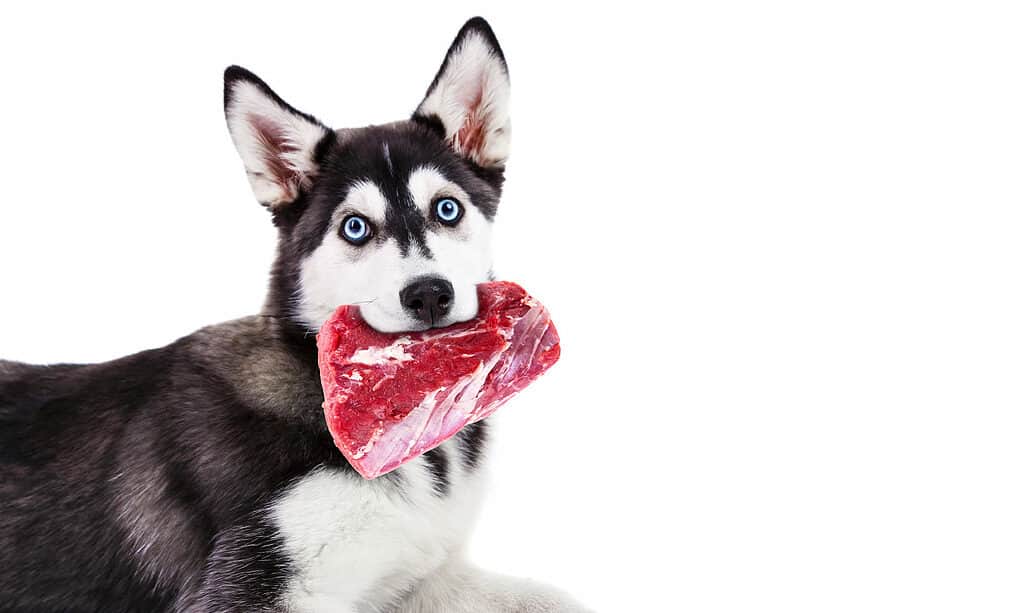If you have a pet dog, you have probably fallen victim to their big-eyed, loving stares as they beg for food from the table. It’s hard to say no when your fluffy friend wants a taste of what’s on your plate, but what if the food is toxic to dogs? Although many human foods are safe for dogs to eat and can provide an occasional healthy treat, some foods contain chemicals that are harmful to dogs even if they are safe for humans. A well-known example is chocolate! This article will explore a food that’s health effects on dogs are not common knowledge. If you have ever wondered “can dogs eat grapefruit?”, the short answer is yes to flesh, but no to the skin. Read on to find out why.
Where Do Dogs Fit in the Animal Kingdom?
Domestic dogs belong to the family Canidae. This family includes dog-like carnivores such as wolves, coyotes, foxes, jackals, and their extinct relatives. Wolves (Canis lupus) are the direct ancestor of domestic dogs (Canis familiaris or Canis lupus familiaris) and is debatably a subspecies belonging to the same species as wolves. Wolves gave rise to the domestic dog species between 20,000 and 40,000 years ago! Since then, humans have extensively bred dogs creating a great amount of diversity within the species. All dog breeds, however, are of the same species and have the same evolutionary relationship with wolves. Many dog breeds have become extinct, but the FCI (an international organization of kennel clubs, including the American Kennel Club) lists approximately 360 official dog breeds.

Domestic dogs are closely related to wolves and coyotes.
©AB Photographie/Shutterstock.com
Members of the family Canidae have a long history of being carnivorous and have special characteristics that facilitate in hunting and processing meat. Domestic dogs have traits unique to their species that diverge from their canid relatives, but they retain many primitive traits related to their ancient diet. Such traits include large canine teeth, a shorter gastrointestinal tract than omnivores and herbivores, mandibular and cranial muscles suitable for ripping flesh, and the forward-facing eyes of a predator. Dogs have many physiological mechanisms optimal for processing and digesting meat.
What Types of Human Foods Are Toxic to Dogs?
There are many human foods that can be healthy for us, but deadly for our pets. Two classic examples of this are chocolate and grapes. Dogs cannot eat chocolate because of the caffeinelike molecule theobromine. This compound increases blood flow to the brain and dogs cannot digest it properly. Although it is not often fatal, ingesting large amounts can be. Smaller amounts can still have dire impacts like seizures and other symptoms. Dogs can also not eat grapes. There are several compounds in grapes that dogs cannot digest such as tannins, flavonoids, and monosaccharides. Early symptoms following grape ingestion are persistent vomiting and subsequent dehydration. Your dog may later exhibit lethargy, lack of appetite, and diarrhea. Consuming large quantities can be lethal.

Foods like grapes and chocolate contain toxins that are harmful to dogs.
©iStock.com/humonia
Another food with a toxin harmful to dogs is the macadamia nut. You may have asked yourself before, can dogs eat nuts? And the answer is not so simple. Although some nuts may not have substantial effects, macadamia nuts can cause the severe illness “macadamia nut toxicosis”. This ailment causes vomiting, weakness, ataxia, hyperthermia, and depression of the central nervous system.
The third and fourth prominent food that commonly harms pet dogs are onions and garlic. Onions and garlic, even in small quantities, can cause a number of different adverse health outcomes. They can cause gastrointestinal distress, red blood cell damage, pancreatitis, and other illnesses. These foods are often ingredients in seasonings found on meat and can be overlooked when feeding your pooch from the table. A common mistake is feeding a dog steak which can be a safe treat but that is potentially harmful if it has seasoning.
What Types of Human Foods are Safe for Dogs?

Many foods are safe for dogs, including beef.
©Africa Studio/Shutterstock.com
Some human foods that are safe for dogs to eat are properly cooked meats including fish, peanut butter, eggs, cheeses, carrots, apples, and many more. It is always important to check the safety of each food before giving it to your dog, especially in large amounts. For meats, make sure there are no seasonings or excess salt on the food before giving it to your dog. If you are ever in doubt, avoid human foods and give your dog treats intended for dogs.
Can Dogs Eat Grapefruit?

The rind of a grapefruit can be toxic to dogs.
©iStock.com/ValentynVolkov
Can dogs eat grapefruit? According to the American Kennel Club (AKC), the flesh of grapefruits is not toxic to dogs. Like oranges, dogs can safely enjoy small amounts of the citrus fruit, but you should avoid giving it to them in large quantities. This is due to the high levels of citric acid in grapefruits. If your dog accidentally eats a small amount, monitor them for symptoms but you likely do not have to worry. If they eat a large amount, take note of symptoms, and consider contacting your veterinarian.
Unfortunately, the skin or rind of a grapefruit is a different story. Although grapefruit flesh can be tolerated in small amounts, the skin is very toxic. The rind of a grapefruit contains natural oils that can harm dogs and if your dog eats one, contact your veterinarian or an emergency animal hospital immediately. Your pooch may experience gastrointestinal symptoms like vomiting, diarrhea, and consequently, dehydration.
There are many safer and healthier treats to give your pets than grapefruits! Be sure to always check before giving your dogs new foods and call your vet if your pet presents symptoms after eating them. For a comprehensive list of common foods that are safe or dangerous to be eaten by dogs, click here!
The photo featured at the top of this post is © sergios/Shutterstock.com
Ready to discover the top 10 cutest dog breeds in the entire world?
How about the fastest dogs, the largest dogs and those that are -- quite frankly -- just the kindest dogs on the planet? Each day, AZ Animals sends out lists just like this to our thousands of email subscribers. And the best part? It's FREE. Join today by entering your email below.
Sources
- Wikipedia, Available here: https://en.wikipedia.org/w/index.php?title=Domestication_of_the_dog&action=history&dir=prev
- American Kennel Club, Available here: https://www.akc.org/expert-advice/nutrition/can-dogs-eat-grapefruit/#:~:text=While%20dogs%20can%20technically%20consume,oils%20that%20the%20skin%20contains.
- ASPCA, Available here: https://www.aspca.org/pet-care/animal-poison-control/people-foods-avoid-feeding-your-pets
Thank you for reading! Have some feedback for us? Contact the AZ Animals editorial team.






